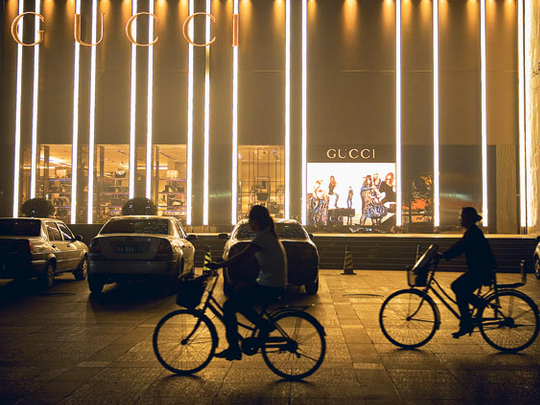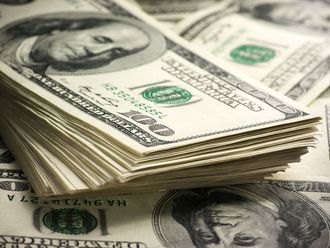
Munich: The international market for luxury goods is recovering slowly from the slowdown in sales caused by the global financial crisis.
After an eight per cent slump in 2009, sales of expensive leisure goods are set to grow by four per cent this year to 158 billion euros (Dh701 billion), according to an analysis of 220 luxury goods firms by German consulting firm Bain & Company presented on Friday, a copy of which was obtained by Gulf News.
The study was made in cooperation with the Italian trade group Fondazione Altagamma.
"After three painful years customers are beginning to buy again," said analyst Rudolf Pritzl.
The renaissance in luxury shopping is mainly driven by wealthy customers from Asia, he said, who tend to purchase expensive accessories, shoes and leather goods.
Important chance
The growth rate for luxury shopping in Asia is estimated at 15 per cent this year. In North and South America the analysts expect four per cent growth, in Europe three per cent.
"This means an important change in the target markets for the manufacturers," Pritzl said. "The temporary phenomenon of ‘luxury shame' is disappearing in more mature markets," Pritzl said.
"The attraction of luxury goods is returning at the same time." Consumer trust and the recovering travel market are also fuelling the positive trend, he added.
"In the midst of the worst crisis ever for the luxury sector, the manufacturers showed an excellent capacity of reaction and were able to recover faster and better than many other sectors," said Santo Versance, chairman of Fondazione Altagamma.
"Many brands have concentrated themselves on their core businesses and invested massively in product design and innovation."
However, while the bigger luxury brands will be able to enlarge their market share and expand into new markets and sectors as, for example, Versace and Gucci are doing with fancy hotel chains many smaller companies will have to keep an eye on their balance sheets and might be forced to secure their liquidity basis through mergers or take-overs, Pritzl said.
Only two of the 220 brands in the study grew more than five per cent in revenue in 2009, representing ten per cent of the entire sector revenue.
Half of the manufacturers experienced a decline in sales of more than 15 per cent, accounting for only 20 per cent of the overall sector revenue. "This polarisation creates favourable conditions for a market concentration," Pritzl said.











